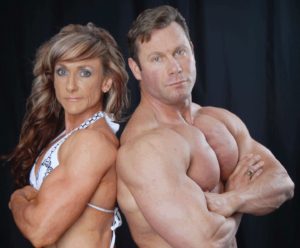The current trend in physique circle is that everyone opts to use a prep coach before entering a competition or physique transformation. We think that’s a great idea! However, with that being said, do you know what you should be looking for in a coach? There are certain basic qualities that everyone should know and pay particular attention to: experience, honesty, and the “eye.”
Experience is a strong attribute when prepping clients. An experienced coach will have seen more diet road bumps and will have better tools to deal with problems when they occur.
Troubleshooting a diet crisis successfully comes with putting time in. Hiring a coach whose resume only reads as having competed in one show is a disaster waiting to happen. When we first started dieting clients, we studied under IFBB pros Donna and Brian Logue. They had years of experience, and we were lucky enough to have them teach us their craft. We worked with them for four years, discussing each client intimately and working out the successful plan of attack. It was an invaluable learning experience, and I don’t know of another prep coach who has gone through such a learning experience (other than Chris Aceto, who mentored under Bob Gruskin). Sure, trial and error is a great way to learn, but tell a client that you want to experiment on him and I know what I would say if I were the client! We really do owe Brian and Donna everything, as they set the foundation for what we do today.
Honesty is a tough one. It’s especially tough with a generation raised on “Tim Hortons hockey,” where everyone gets a participation medal. It’s tough to tell athletes what they should hear rather than what they want to hear, but the serious clients will appreciate it. The antithesis of an “honest coach” is the “entourage coach.” These are coaches who continually blow smoke up their clients’ asses. They excel in the motivational aspect of coaching, but fail in what really counts: getting clients stage-ready with pro-level conditioning. I’m sure you’ve seen them before: rubbing their clients’ traps while boisterously stating, “You’ve got this, champ!” My response? All sizzle and no steak. Avoid them at all costs. Trust me, you want honesty.
I’ve said many times that dieting for a show is more like an art than a science. The art of being a guru is having a good eye. Almost everyone knows what an athlete should look like on show day, but do they really know what a competitor should look like at 10 weeks out? How about six weeks out? Having the eye allows a coach to properly set a plan in motion so that the client isn’t crash-dieting to get in shape. There are many coaches who are “body blind.” Without a good eye, it’s normal to overestimate the amount of muscle an athlete carries and underestimate the amount of body fat needs to be lost.
Do your research when choosing a contest prep coach. Work with someone whose general dieting philosophies make sense to you. Talk to the coach’s team members. Get feedback from not only the success stories but also the ones who didn’t do so well. Hiring a bad coach is more than just throwing money away; it’s also about the loss of competitive career time. A bad coach can set you back a year, and in a sport that is highly judged on a youthful, healthy appearance, time is a commodity you can’t afford to lose.

